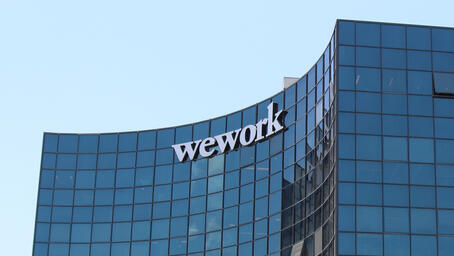Getting your Trinity Audio player ready...
WeWork is set to resume normal operations after a New Jersey judge approved its restructuring plan, allowing the company to emerge from bankruptcy and eliminate $4 billion in debt. Now, the challenge is for WeWork to demonstrate that its core business model is viable and not just based on grandiose promises.
Once the world’s most valuable startup with a market value of $47 billion in 2019, WeWork filed for creditor protection in October. Founded in New York by Adam Neumann and Miguel McKelvey, the company faced a financial crisis due to overwhelming debt and soaring rental costs.
The restructuring agreement with its new owner, Anant Yardi, marks WeWork's return to private ownership. The company has raised $450 million, primarily from Yardi, and plans to close approximately 160 of its 760 locations worldwide. According to company statements, it has secured new leases at lower costs, moves expected to save an additional $12 billion.
In April, WeWork’s advisors valued the company at $750 million and projected annual revenues of around $2.5 billion by 2028.
"For several months, we tried to work constructively with WeWork to create a strategy that would allow it to thrive," Neumann told The New York Times after withdrawing from the race. "Instead, the company looks to be emerging from bankruptcy with a plan that appears unrealistic and unlikely to succeed." Judge Sherwood said upon approving the reorganization that it would allow WeWork to be a "sustainable and successful company."
According to the company’s announcement, current CEO David Tolley will be replaced by John Santora from real estate firm Cushman & Wakefield. Santora will be WeWork's fourth CEO in five years since Neumann was ousted following a failed IPO and severe public criticism over its problematic corporate governance and deals led by Neumann for his personal benefit. "I believe that a flexible working model is much more than an option," said Santora. "It is a strategic imperative for companies looking to maximize the efficiency of their real estate footprint and their dynamic workforce."
WeWork completed its IPO on the New York Stock Exchange in 2021 through a SPAC merger, valuing the company at $9 billion. However, by last August, its value had plummeted to $270 million, leading to its bankruptcy declaration. During this period, thousands of employees were laid off, and numerous leases were terminated in an effort to stay afloat.
Under the restructuring plan, WeWork's board will be revamped, with four out of seven members coming from Yardi Systems, which has become the main shareholder through its subsidiary Cupar Grimmond. One board seat is reserved for a representative of SoftBank, the Japanese investment giant and WeWork's largest investor over the years, which has invested about $18 billion in capital and debt. SoftBank also provided some of the current capital and is now a minority shareholder.
Yardi Systems, a private real estate management software company founded by Anant Yardi in 1982, reports annual revenues of $3 billion. Yardi's interest in WeWork began two years ago when he injected $175 million in debt and purchased $40 million in stock through Cupar Grimmond.
Despite recording only one net profit since its founding 14 years ago in 2012, and facing a declining office market, WeWork and its new owners remain confident in the viability of the coworking space model. In recent years, the office rental market has significantly weakened, initially due to the COVID-19 outbreak and the shift to remote work, and later with the rise of hybrid work models. By the end of 2023, office vacancy rates in the United States reached 19.6%, the highest since 1979, compared to about 12% before 2020.
The market crisis that accelerated WeWork’s collapse also provided an opportunity to renegotiate leases, which comprise about two-thirds of its operating costs. The company now hopes that with leaner contracts and by exiting unprofitable locations, it will achieve profitability for the first time in over a decade.



